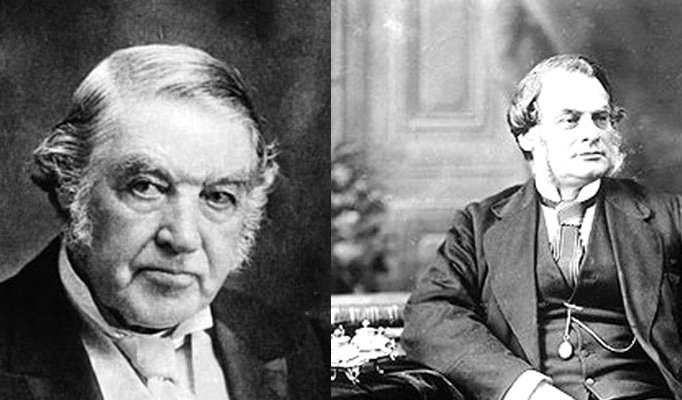
Remember the late Bobby Gimby’s best-selling song ‘Ca-na-da’ created for the 100th Anniversary of Canada in 1967? Known as ‘The Pied Piper of Canada’, Gimby wore a cape as he led countless Canadian parades. Fifty years later, we are celebrating again this amazing land of Canada. We won’t soon forget the fireworks on English Bay and around the nation. On July 1st, thousands gathered in a ‘Voices Together’ celebration on Canada’s 150th birthday at the Pacific Coliseum on a national holiday originally called Dominion Day.
Sir Samuel Leonard Tilley, a Father of Canadian Confederation and twice the Lt. Governor of New Brunswick, rose each morning to start his day with prayer and scripture reading. As the 33 founding Fathers gathered in 1864 at Charlottetown, PEI, many names were suggested for this new nation. That morning, as Tilley read from Psalm 72:8, he became so convinced that Canada should be a nation under God, that when he came down to the Conference session, he presented the inspired name “Dominion of Canada”. Our National Motto on our Coat of Arms “A Mari Usque Ad Mare” (from sea to sea) was drawn from Psalm 72:8 – “He shall have dominion from sea to sea.” Tilley, whose life was transformed after he came to a personal knowledge of Jesus Christ in 1839, became an Anglican Sunday School teacher and a Church Warden (Elder), and his son Harrison became a well-known Anglican priest.
One day, an 11-year old girl ran to Tilley for help, after her drunken father brutally stabbed her mother to death. Because of this tragedy, Tilley went from being a quiet pharmacist to becoming the Premier of New Brunswick in his campaign for alcohol reform. When he brought in alcohol legislation, Tilley was burned in effigy, his house was attacked, and his family’s lives were threatened.
Tilley and Tupper – unlikely cohorts: Tilley the ‘dry Anglican’ was good friends with Sir Charles Tupper the ‘drinking Baptist’, Premier of Nova Scotia. Both shared a passion for railways which they believed were the key to the Maritimes’ future. Sir Charles Tupper eventually became the Federal Minister of Railways, bringing the CPR railway line to Vancouver, and BC into Confederation. The 1864 Charlottetown meeting was originally intended to bring a Maritime Union of New Brunswick and Nova Scotia, to defend against the threat of American invasion. But Tupper and Tilley dreamed bigger, inviting Ontario and Quebec to join them in a new Confederation. Tupper read the Bible fully from cover to cover by the age of eight. His father Charles Tupper Sr., a prohibitionist, was one of the founding fathers of the fast-growing Maritime Baptist Churches. While training as a medical doctor in Edinburgh, scotch became a habit from which he never recovered. Tupper served as first president of the Canadian Medical Association.
In 1867 the Halifax Morning Chronicle had described Tupper as “the most despicable politician within the bounds of British North America.” Throughout his career Tupper was variously described as “the Boodle Knight,” the “Great Stretcher” (of the truth), “the old tramp,” the “Arch-Corruptionist,” and “the old wretch.” Although Tupper has the distinction of being the shortest-serving Prime Minister in Canadian history, (67 days!), his marriage lasted 66 years – longer than any other Prime Minister (despite allegations of philandering)! The longest-surviving Father of Confederation held six federal cabinet portfolios. If something very difficult needed to get done, or someone to be won over, Macdonald often said: “Call Tupper.”
In 1883 a British Columbia contractor close to Tupper was awarded a two-million-dollar job, though rivals submitted lower bids. The opposition suspected a payoff. Tupper faced a legal challenge and demands for a full inquiry. He promptly left his retirement home in Vancouver and sailed for London, far from the cry of scandal, to take a diplomatic posting.
On our 150th Anniversary, the lives of Sir Charles Tupper and Sir Leonard Tilley remind us that God can use the most unlikely people to build a nation.

Leave a Reply